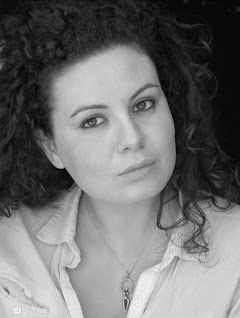Beat
I like to document issues relating to human rights, culture and entertainment.
One Shot

“This picture, taken as part of a story I covered about a school for the blind, was shot in a movie theatre before the beginning of a film. Of the three people in the foreground, one was visually impaired, one completely blind and the third one, an employee at the school, was sighted. I took this photo thinking of the three different ways they had of perceiving and remembering the same, ordinary situation - sitting in a cinema during the screening of a movie.”
Profile
When I was a child, my mother would always force me, my brother and my father to pose for pictures during family trips. We had to wait a long time for the click to come and we always complained about it, but my mother would reply: “you never grumble when you see them after they are developed, and everyone’s happy.” It makes me think now of the most common role that photos play - bringing people together to decide how they will remember a moment in time.
While studying History of Art in college, I used to write reviews of art and photography, and at one point, I found myself writing about the work of Giulio di Meo, an Italian photographer. Meeting him for an interview was a turning point for me. As a friend, a student, and an assistant I started to conceive of photography the way he was offering it: as an excuse to explore and understand the world, and to question oneself as much as the things happening at the other end of the camera. It was his silent example that taught me the most.
For my first assignment, I went to photograph a music festival called Sing Sing in San Vittore penitentiary, Milan, along with a group of photographers from an online publication called Fotoup. San Vittore is Milan’s oldest penitentiary. It's infamously overcrowded, most of the inmates are immigrants arrested for minor crimes generally related to drugs, and half of them are awaiting trial. When the audience came in and the performance started, we were scattered among the crowd with no barriers separating us, and I was surprised at finding myself completely at ease. Photography does that - instead of reading about a situation you’re thrown into the middle of it and you can feel the people involved and their energy, even without talking.
I recently completed a project about blindness and visual impairment, and when it was published in the New York Times I received calls from people who were blind or visually impaired themselves, or who had a relationship with someone affected by the issue. They had recognised their own experiences in my pictures and wanted to collaborate. That was the most rewarding part of the project - it confirmed that I was doing something that rang true with the people involved, rather than just being important to me.
I like covering stories where I find myself in situations very different from my own experiences. I enjoy the assignments that make me think: “I would have never ended up here if it weren't for photography.”
I want to communicate with an audience whose attention would not normally be caught by the issue I’m covering. I try to make a difference, but not to overstate things. And I prefer to take photos that make people think, rather than telling them what to think.
I have learnt that nothing I do in connection with my work will ever be useless. Sometimes I have found myself spending my energies on a story or an aspect of a story that didn't seem to produce immediate results. With time, however, the experience and material I got revealed themselves useful at the most unpredictable moments.
I respect other people's trust and I try to deserve it. And I respect photographers who talk through their actions.
Behind the Scenes


